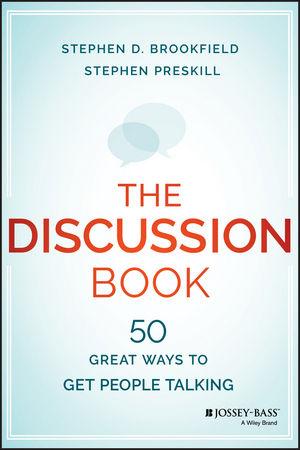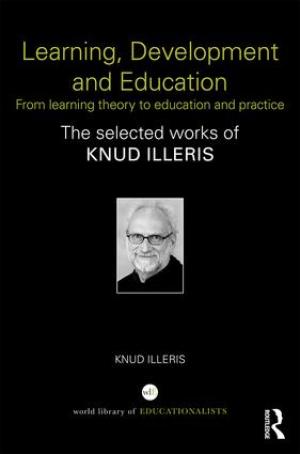Resources
In the undergraduate religious studies classroom at the University of Leeds students are introduced to the complexity of religion in locality. One of the most engaging ways to do this is through a place-based pedagogy utilizing independent fieldwork as part of the learning process. However, undergraduates, like seasoned researchers, must learn to balance and understand the way insider representations influence academic interpretations, and the way their academic interpretations and representations can lead to change in the community being studied. Place-based pedagogy has, therefore, an important ethical dimension that is not accounted for in the existing literature. Engaging with reciprocal research relations as a way to navigate this terrain introduces students to the human impacts of their research and develops their self-awareness as researchers and religion specialists. This paper will draw on the Leeds experience to build an understanding of the interaction between place-based pedagogy and reciprocal research relations which informs both teaching and research in the study of religion, and extends the existing discourse on the ethical dimensions of undergraduate research.

Click Here for Book Review Abstract: Academic libraries are in the midst of significant disruption. Academic librarians and university administrators know they need to change, but are not sure how. Bits and pieces of what needs to happen are clear, but the whole picture is hard to grasp. Reimagining the Academic Library paints a simple straightforward picture of the changes affecting academic libraries and what academic librarians need to do to respond to the changes would help to guide future library practice. The aim is to explain where academic libraries need to go and how to get there in a book that can be read in a weekend. David Lewis provides a readable survey of the current state of academic library practice and proposes where academic libraries need to go in the future to provide value to their campuses. His primary focus is on collections as this is the area with the greatest opportunity for change and is the driver of most library cost. Lewis provides an accessible framework for thinking about how library practice needs to adjust in the digital environment. The book will be useful not only to academic librarians, but also for librarians to share with presidents and provosts who a concise source for understanding where and how to focus their expenditures on libraries. (From the Publisher)

Do you need a resource that you can pull out of your pocket to liven up meetings, trainings, professional development, and teaching? The fifty easily applied techniques in this timely manual spur creativity, stimulate energy, keep groups focused, and increase participation. Whether you're teaching classes, facilitating employee training, leading organizational or community meetings, furthering staff and professional development, guiding town halls, or working with congregations, The Discussion Book is your go-to guide for improving any group process. Each of the concrete techniques and exercises is clearly described with guidance on selection and implementation, as well as advice on which pitfalls to avoid. All of the techniques: - Offer new ways to engage people and energize groups - Get employees, students, colleagues, constituents, and community members to participate more fully in deliberative decision-making - Encourage creativity and openness to new perspectives - Increase collaboration and build cohesive teams - Keep groups focused on important topics and hard-to-address issues Derived from the authors' decades of experience using these exercises with schools, colleges, corporations, the military, social movements, health care organizations, prisons, unions, non-profits, and elsewhere, The Discussion Book will help you guide discussions that matter. (From the Publisher)

Click Here for Book Review Abstract: In the World Library of Educationalists, international experts themselves compile career-long collections of what they judge to be their finest pieces – extracts from books, key articles, salient research findings, major theoretical and practical contributions – so the world can read them in a single manageable volume. Readers will be able to follow the themes and strands and see how their work contributes to the development of the field. This volume brings together the selected works of Knud Illeris. Leaving a promising business career at age 27 to begin his higher education, Knud Illeris exemplifies the true spirit of youth and adult education that has resulted in him having published in almost twenty countries, including the UK, Germany, China, Korea and Brazil. Knud Illeris’ work revolves around the way learning takes place and in some cases does not take palce. Split into five parts; - Learning Theory - Lifelong Learning as a Psychological Process - Special Learning Issues - Various Learning Approaches to Education - Learning in Working Life Learning, Development and Education: From learning theory to education and practice is arranged thematically and examines youth and adult learning through Illeris’ model based on three dimensions of learning and competence development– emotional, cognitive and social, and four kinds of learning. In this collection of his papers, written over a period of almost five decades, and published in multiple languages, spanning from Faroese to Chinese, some of his most important works are chronicled. This compelling overview of Illeris’ contribution to educational thinking and theory charts the challenges and obstacles faced by disciplination and selection, and offers a genuine impression and understanding of an almost lifelong engagement with a wide range of topics in the field of learning – an engagement which has been the central area of Illeris’ academic life. (From the Publisher)
In this article, I address the challenge of fostering better student engagement with ancient material, and discuss my experience with designing a course around creative use of technology. In my recent course, “The Ancient Christian Church: 54–604 CE,” I employed several tactics to encourage student engagement with ancient and modern sources, which also promoted active participation at the level of pedagogy. By designing the classroom experience to allow for student-centered technology use, students were enabled to explore the ancient world in creative ways. In the end, I noticed greater student participation and higher-quality understanding of the ancient church when compared with lecture- or seminar-focused classroom experiences.
Research begins with good questions. Undergraduate students often struggle with research projects because they do not know how to pose good research questions. This note describes a teaching strategy that is collaborative and digital, and enables students to practice asking research questions and acquire skills for evaluating them collectively. Working in groups and through a digital medium, students query each other's research interests and, in turn, inhabit the kinds of conversational practices that characterize authentic scholarly discourse.
One page Teaching Tactic: an online platform that helps students master vocabulary terms .
One page Teaching Tactic: using a game to help students learn course content
One page Teaching Tactic: students work through the steps for doing comparative theology: encounter, interpretation, and comparison .
In this set of essays, three authors provide different perspectives on whether personal religious sensibilities and identities affect the ways we teach religion. Elliott Bazzano discusses how, as a white Muslim convert teaching at a Catholic college, he incorporates selective autobiographical anecdotes into his classes as a way to problematize the meaning of “insider” and “outsider,” and pushes his students to recognize the many layers of identity that any given person embodies at a given time. In the second essay, Audrey Truschke explains why she makes no reference to her own religious beliefs or affiliations in class as part of her strategy to demonstrate how students can study any religion regardless of personal convictions. In the third essay, Jayme Yeo explores the benefits of discussing personal religious identity as a means to resist the categories of “inside” and “outside,” which she sees as heterogeneous concepts that do not always offer explanatory power upon close examination.
Wabash Center Staff Contact
Sarah Farmer, Ph.D
Associate Director
Wabash Center
farmers@wabash.edu